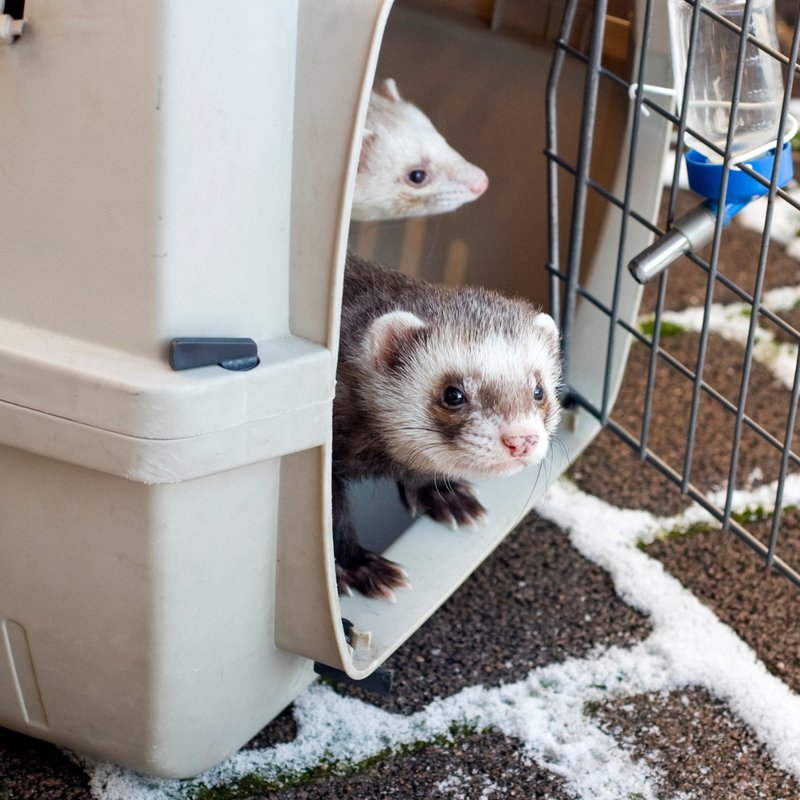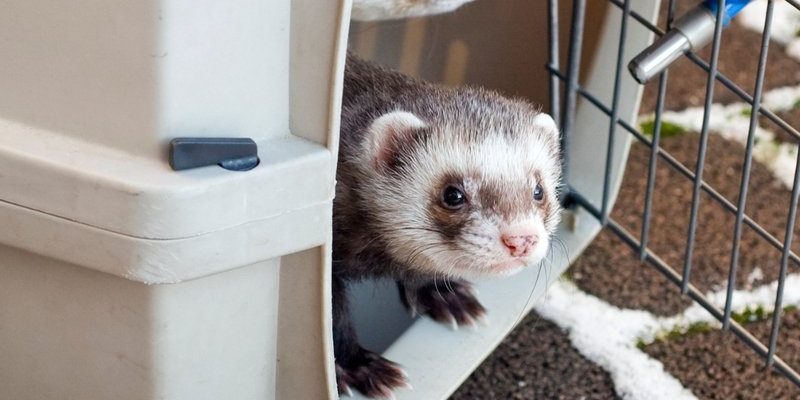
Health concerns in ferrets can be easily overlooked; these little guys are often so full of energy and mischief that it’s easy to miss signs of something being wrong. But here’s the thing: being aware of potential health issues can make a world of difference. From diet to general care, every choice impacts your ferret’s well-being. Let’s dig deeper into these common health challenges and discuss how to keep your chocolate ferret in tip-top shape.
Common Health Issues in Chocolate Ferrets
Chocolate ferrets can face various health issues, just like any other pet. Some of the most common problems include dental disease, adrenal disease, insulinoma, and gastrointestinal issues. Understanding these challenges is the first step in prevention and treatment.
Dental Disease
Dental disease is a prominent concern in ferrets, and it’s often overlooked. Ferrets have teeth that can accumulate plaque and tartar quite easily. If you don’t keep an eye on their dental health, they can develop painful gum infections or lose teeth. You might notice your ferret having trouble chewing, bad breath, or excessive drooling.
Preventing dental issues starts with establishing a solid oral care routine. Brushing your ferret’s teeth regularly can help remove plaque before it hardens into tartar. You can use a small, soft toothbrush and a toothpaste made specifically for pets. Honestly, starting early is vital—getting your ferret used to the brush will make the process much easier as they grow.
Adrenal Disease
Adrenal disease is another serious issue in chocolate ferrets. It’s caused by hormonal imbalances and is often seen in ferrets over three years of age. Symptoms can include fur loss, a swollen belly, and changes in behavior like increased aggression or lethargy. This condition can progress quickly, so prompt attention is essential.
To prevent adrenal disease, maintaining a proper diet is key. A high-quality ferret food with the right balance of protein and fats will support their overall health. Regular vet check-ups can help catch any signs of hormonal imbalance early. Remember, keeping your ferret active and engaged also plays a role in preventing health issues.
Insulinoma
Insulinoma is a type of tumor that affects the pancreas and can cause serious health problems for your chocolate ferret. Essentially, the tumor produces too much insulin, leading to dangerously low blood sugar. You might see symptoms like weakness, seizures, or excessive drooling. It’s truly heartbreaking to watch a pet suffer from this condition.
The best preventive measure is to feed your ferret multiple small meals throughout the day to help regulate their blood sugar levels. Also, incorporating high-quality protein sources in their diet can support their overall health. If you notice any concerning symptoms, don’t hesitate to consult your vet right away.
Gastrointestinal Issues
Gastrointestinal issues are a frequent concern for ferret owners. From diarrhea to constipation, digestive problems can arise due to stress, dietary changes, or infections. A sudden change in diet can lead to digestive upset, which is no fun for either you or your ferret.
To keep your chocolate ferret’s gut in check, introduce any dietary changes slowly. Stick with premium ferret food and avoid sudden shifts or too many treats. Paying attention to their drinking habits is equally important—make sure they always have fresh water available. When in doubt, keep a close eye on their eating and pooping habits to catch any issues early.
Preventive Care: Regular Check-ups
Just like you wouldn’t skip your own doctor visits, your ferret needs regular vet check-ups too. Bringing your chocolate ferret to the vet once a year for a wellness exam is crucial. These exams typically include a full physical, dental check, and any necessary vaccinations.
During these visits, communicate any changes you’ve noticed in your ferret’s behavior or eating habits. Your vet can offer tailored advice and may find underlying issues that could become serious if left unchecked. Regular vet visits are your best defense against many health problems and can save you from costly treatments down the road.
Vaccinations and Health Screenings
Vaccinations are another vital aspect of preventive care. Ferrets are susceptible to several diseases, including rabies and distemper, which can be fatal. Your vet will help you create a vaccination schedule to ensure your ferret is protected.
Health screenings, like blood tests, can help detect conditions early. For older ferrets, regular screenings are especially important. These tests can reveal issues like kidney disease or thyroid problems before they become severe.
Nutrition: The Foundation of Health
The food your chocolate ferret eats plays a massive role in their overall health. Ferrets require a high-protein, high-fat diet that’s low in carbohydrates. Look for a premium ferret food that contains at least 30% protein and 20% fat.
Avoid feeding your ferret human food, especially those that are high in sugar or carbohydrates. These can lead to obesity and other health issues. Remember, a well-balanced diet is the cornerstone of good health, so invest time in researching the best options for your pet.
Homemade Treats
If you want to spoil your ferret a little (and who doesn’t?), consider making homemade treats. You can use ingredients like cooked chicken, turkey, or even high-quality commercial ferret treats. Just be cautious with portion sizes—too many treats can lead to weight gain.
When making treats, always ensure they’re safe and suitable for ferrets. Avoid anything sugary or processed. With a little creativity, you can make tasty snacks without jeopardizing your ferret’s health.
Creating a Safe Environment
Having a safe and enriching environment is crucial for your chocolate ferret’s health. Ferrets are naturally curious and need space to explore and play. Consider creating a ferret-proof play area with toys, climbing structures, and safe hiding spots.
Ensure that all toxic plants, chemicals, and small objects are out of reach. Regularly rotating toys can keep their environment stimulating, which helps prevent boredom-related issues like destructive behavior.
Socialization and Interaction
Lastly, don’t underestimate the power of socialization. Ferrets thrive on interaction, so spend time playing and bonding with your furry friend. This not only keeps them happy but also helps you watch for any changes in behavior or health.
Regular playtime can improve their mental stimulation and physical health. Plus, it’s a great way for you to deepen your bond with your adorable chocolate ferret.
In conclusion, while chocolate ferrets are delightful companions, they do face specific health challenges. By staying informed, maintaining regular vet visits, and providing a proper diet and safe environment, you can help ensure your ferret stays healthy and happy for many years to come. Remember, your little buddy relies on you for their well-being, so let’s keep them thriving!

